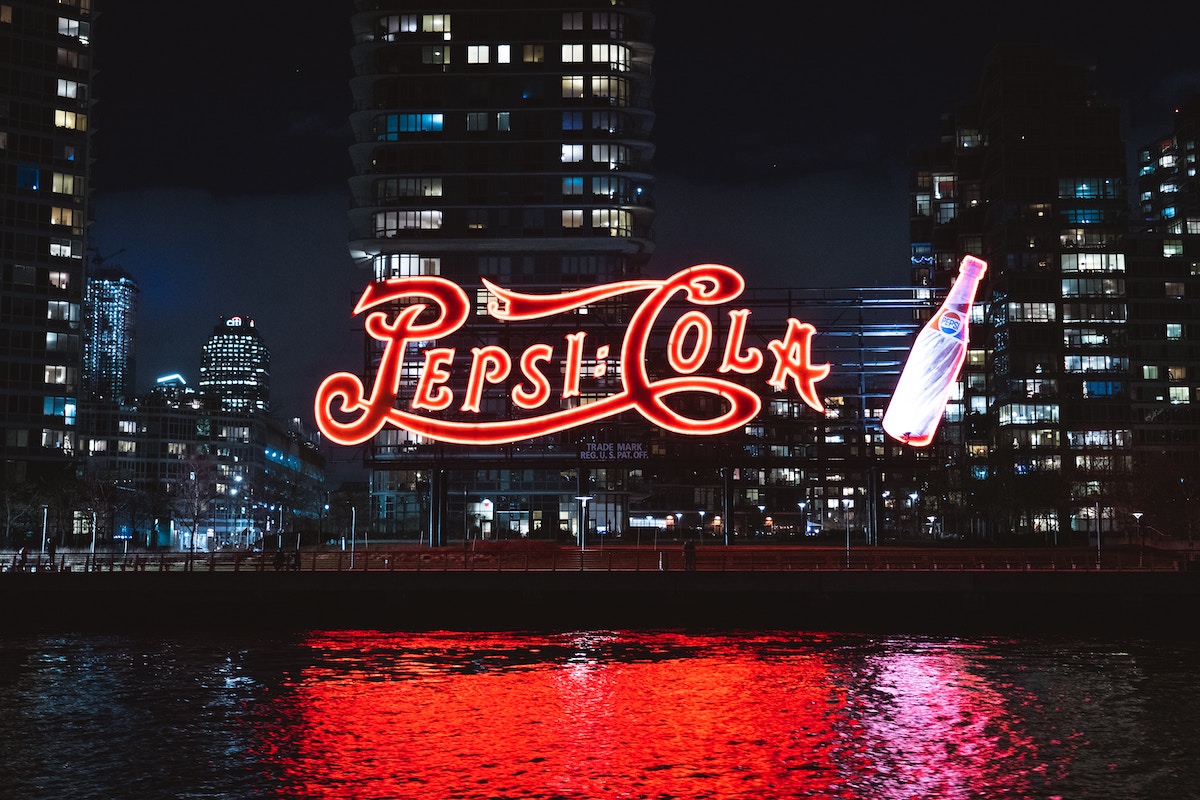Last Updated on March 4, 2024
PepsiCo. Inc., more commonly known as PepsiCo, is a food and beverage company that needs no introduction. You’ve most certainly indulged in a snack manufactured by this multinational corporation or at least treated your eyes to its colorful television advertisements.
As with most multinational companies, PepsiCo attributes much of its success to numerous mergers and acquisitions undertaken over the years. This article looks at some of the corporation’s top subsidiaries.
But first, let’s begin easy by giving a short introduction to PepsiCo and a brief history of its origins.
About PepsiCo
PepsiCo, Inc. is an American multinational food and beverage corporation. The company was founded on August 28, 1898, by a pharmacist and businessman Caleb Bradham. It was previously based in New Bern, North Carolina, before eventually moving to its current headquarters in Harrison, New York.
PepsiCo was initially known as Pepsi-Cola until 1965 when Pepsi-Cola Company merged with Frito-Lay to form the PepsiCo company as we know it today.
Although it traces its origin to humble beginnings, PepsiCo has been known in recent years for its lucrative acquisitions. The largest of these acquisitions was that of Quaker Oats in 2001 for $13.8 billion. As of January 2023, PepsiCo owns at least 20 brands which jointly bring in over $86.4 billion in annual revenue. That’s enough to make it the world’s second-largest food and beverage company in terms of net revenue, profit, and market capitalization, coming only after Nestlé.
PepsiCo is also one of the most successful food and beverage companies in terms of global reach. As at the time of writing (March 2023), the company sells its products to over 200 countries and territories worldwide.
Click here to read more about PepsiCo and its inspiring success story.
Brands Wholly Owned By PepsiCo
1. Frito-Lay
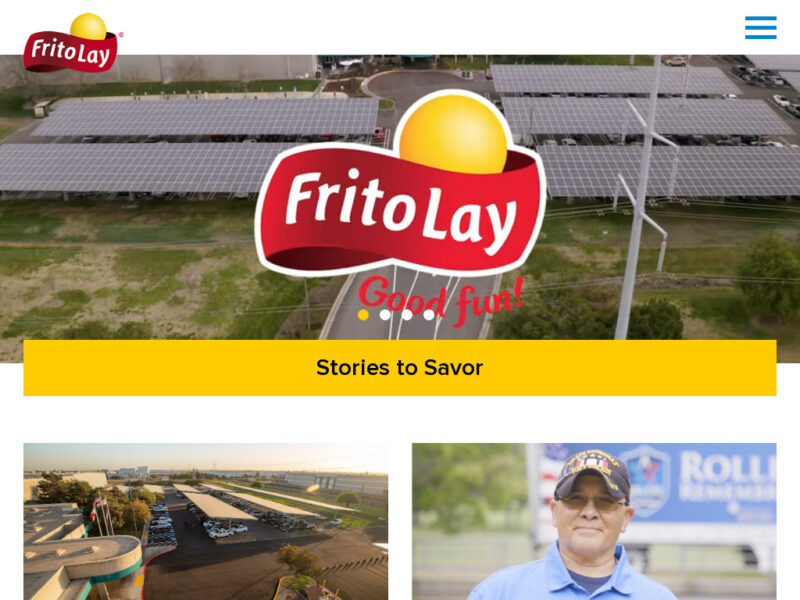
Year Founded: 1961
Founder: Herman Lay
Current Headquarters: Plano, Texas, United States
Flagship Products: Snack foods
Year Purchased by PepsiCo: 1965
Purchase Amount: Approximately $213 million
Frito-Lay was the first in what would become an endless list of mergers and acquisitions by PepsiCo. The company initially operated as The Frito Company and H.W. Lay & Company before merging with Pepsi-Cola Company in 1965 to form PepsiCo.
Frito-Lay deals in a wide array of snack foods. It also manages more than fifteen brands, including Lay’s, Fritos, Doritos, Cheetos, Ruffles, and Tostitos.
2. SoBe
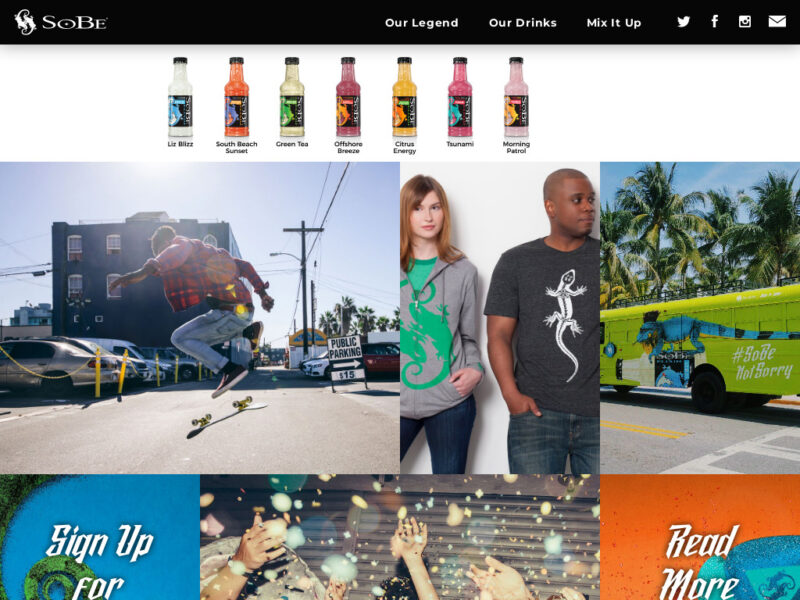
Year Founded: 1996
Founders: John Bello and Tom Schwalm
Current Headquarters: Purchase, New York, United States
Flagship Products: Enhanced water, Fruit juice, and Tea
Year Purchased by PepsiCo: 2000
Purchase Amount: $370 million
SoBe is a brand that specializes in the manufacture and distribution of enhanced water, fruit juice, and teas. It was one of the most significant PepsiCo acquisitions at the dawn of the new millennium.
The word SoBe is basically an abbreviation for South Beach. The name was inspired by the upscale neighborhood in Miami, Florida, known for its scenic beaches and exquisite dining experiences.
3. The Quaker Oats Company
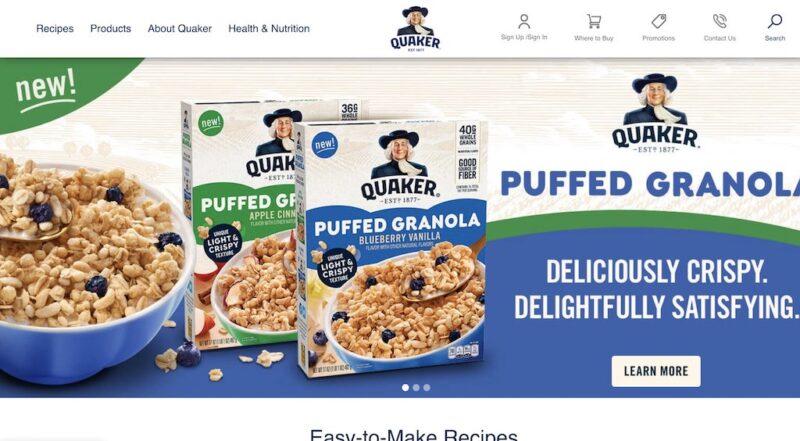
Year Founded: 1877
Founder: Henry Parsons Cromwell
Current Headquarters: Chicago, Illinois, United States
Flagship Products: Oats and Oatmeal
Year Purchased by PepsiCo: 2001
Purchase Amount: $13.8 billion
The Quaker Oats Company, more commonly known simply as Quaker, is a Chicago-based food conglomerate. The company is best known for manufacturing oats, oatmeal, cereal, snacks, and a range of other food and beverage products.
Quaker became a PepsiCo subsidiary in 2001 after PepsiCo paid a whopping $13.8 billion for a 100% stake. Following this lucrative deal, The Quaker Oats Company changed its name to Quaker Food and Beverages.
4. Naked Juice
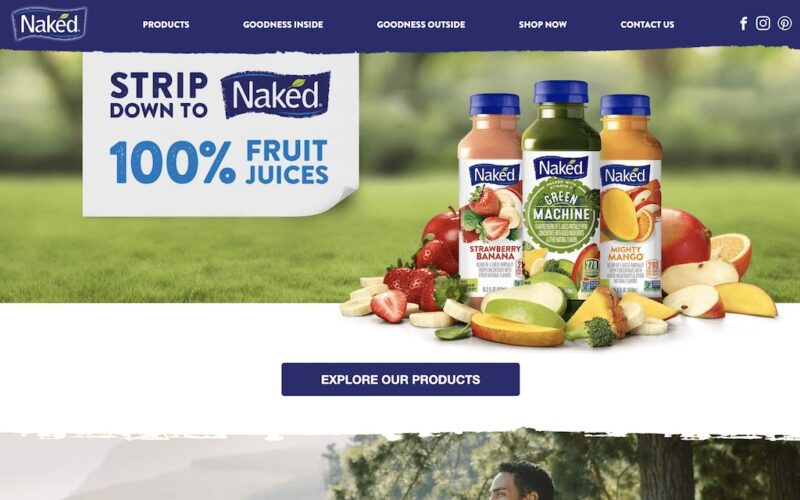
Year Founded: 1983
Founders: Jimmy Rosenberg and David Bleeden
Current Headquarters: Monrovia, California, United States
Flagship Products: Smoothies and Fruit juices
Year Purchased by PepsiCo: 2006
Purchase Amount: $150 million
Don’t be deceived by the name. There’s nothing sexually explicit about products manufactured by this PepsiCo brand.
Instead, the name ‘Naked Juice’ comes from the fact that the company’s products are free of preservatives, artificial flavors, and added sugars. So, it’s clear to see why this PepsiCo subsidiary attracts millions of repeat customers worldwide.
5. The Smith’s Snackfood Company
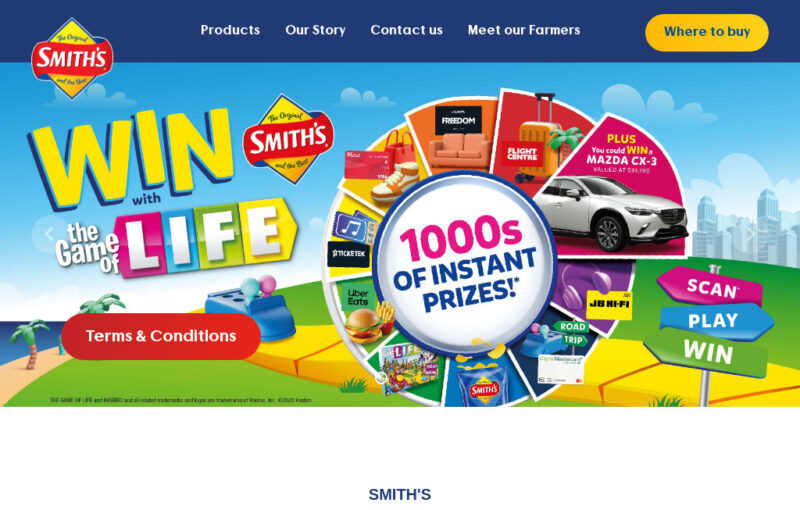
Year Founded: 1920
Founders: Frank Smith, Jim Viney, and George Ensor
Current Headquarters: Chatswood, Australia
Flagship Products: Snack foods and Potato chips
Year Purchased by PepsiCo: 1998
Purchase Amount: $300 million
PepsiCo’s insatiable quest for success has seen it avail its products to virtually all permanently inhabited continents. The company’s expansion campaigns have also resulted in the acquisition of brands that aren’t necessarily based within the United States borders, such as The Smith’s Snackfood Company.
Founded in 1920 by a group of enterprising investors, The Smith’s Snackfood Company has grown into one of the most successful snack food brands in Oceania. It also commands a significant share of the United Kingdom food and beverage market.
6. Bluebird Foods
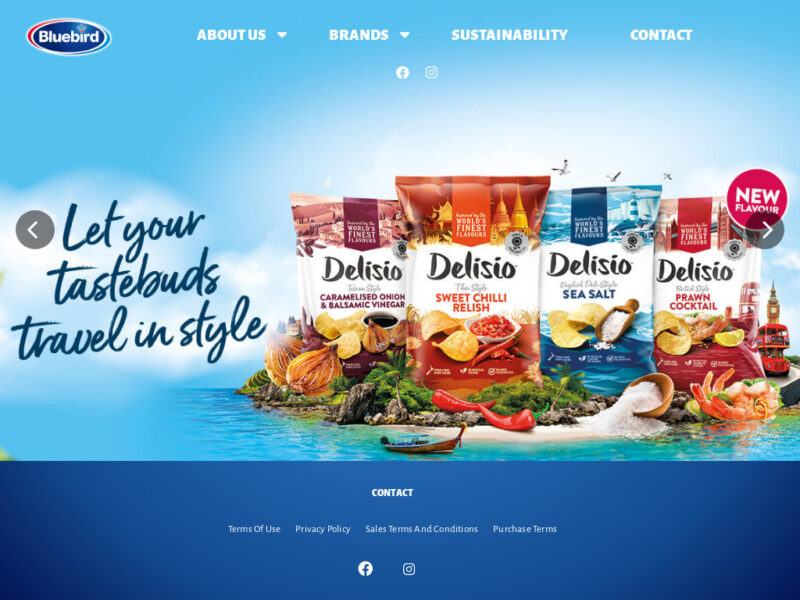
Year Founded: 1953
Founder: Les Saussey
Current Headquarters: Manukau, Auckland, New Zealand
Flagship Products: Snack foods and Cereals
Year Purchased by PepsiCo: 2006
Purchase Amount: NZ$245m
Staying with Oceania, there’s the New Zealand-based Bluebird Foods Ltd, a PepsiCo division that manufactures snack foods as well as cereals and muesli bars. All snacks by this brand are manufactured at a factory in Wiri, Auckland.
While it’s a PepsiCo subsidiary, Bluebird Foods markets its snacks under various brands. Notable ones include Bluebird Original Cut Chips, Cheezels, Burger Rings, Doritos, and Cheetos. Thanks to its effective marketing strategies, Bluebird Foods has managed to maintain a solid grip of the New Zealand snack foods and cereals market.
7. Walkers
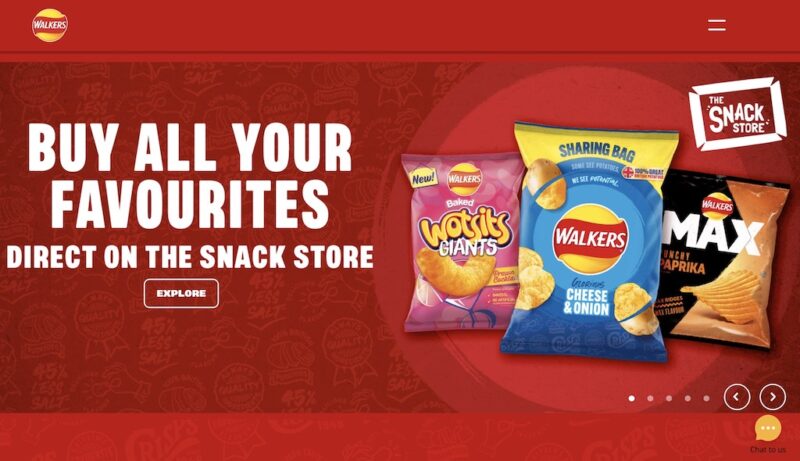
Year Founded: 1948
Founder: Henry Walker
Current Headquarters: Leicester, England
Flagship Products: Snack foods
Year Purchased by PepsiCo: 1989
Purchase Amount: $1.35 billion (paid for both Walkers Crisps and Smith Foods)
Walkers is yet another wholly-owned PepsiCo subsidiary that’s based outside the United States. The snack foods manufacturer manages eight different brands. They include Lay’s, Doritos, Frazzles, Squares, Quavers, Salt ‘n’ Shake, Wotsits, and Monster Munch.
Walkers’ products are primarily available in the United Kingdom and Ireland.
8. Mirinda
Year Founded: 1959
Founders: Unknown
Current Headquarters: Spain
Flagship Products: Soft drinks (Fanta and Crush)
Year Purchased by PepsiCo: 1970
Purchase Amount: Undisclosed
Website Link: https://pepsico.com.pk/Brands/Detail?brandId=35/
Mirinda is a soft drink manufacturer that originated in Spain. The company was created in 1959 and became an instant success in Europe. Mirinda’s fortunes increased exponentially from 1970 when PepsiCo began distributing its products. It remains a top soft drink brand in Europe as well as one of PepsiCo’s subsidiaries that operate primarily outside the United States.
Due to its presence across several countries, Mirinda goes by many names. The brand is called Kas in Spain, Tams in South Korea, Slam in Italy, Sukita in Brazil, and Yedigun in Turkey. It’s also known as Sisi in the Netherlands, Frustyle in Russia, Sol in Mexico and certain US states, Horoyoipop in Japan, and ??? in China.
9. SodaStream International Ltd.
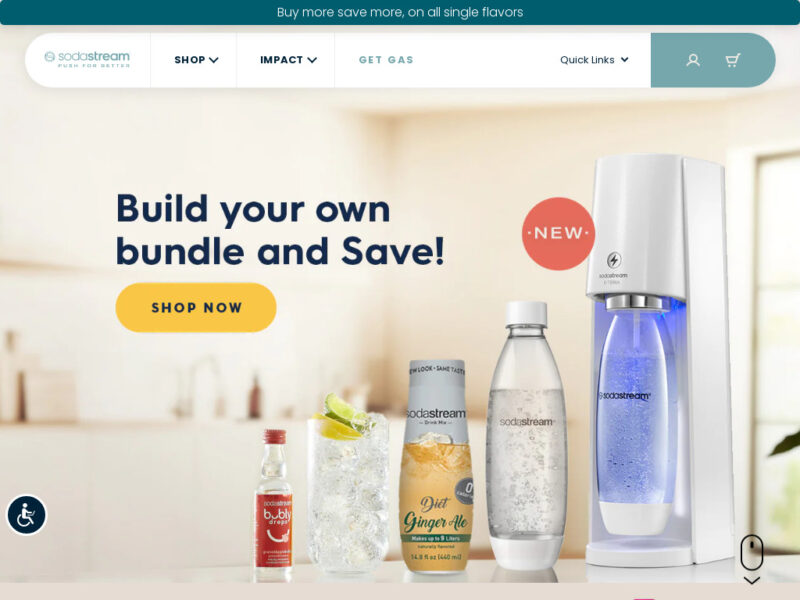
Year Founded: 1903
Founder: Guy Hugh Gilbey
Current Headquarters: Kfar Saba, Israel
Flagship Products: Home carbonation systems
Year Purchased by PepsiCo: 2018
Purchase Amount: $3.2 billion
SodaStream International Ltd. is an Israel-based manufacturer of consumer home carbonation systems and a variety of other products. The company was founded in 1903 in England, United Kingdom but later moved its headquarters to Kfar Saba in Israel.
SodaStream’s soda machines are designed in the shape of soda siphons. The machines create carbonated water by injecting carbon dioxide into water with the aid of a pressurized cylinder.
10. Pioneer Foods
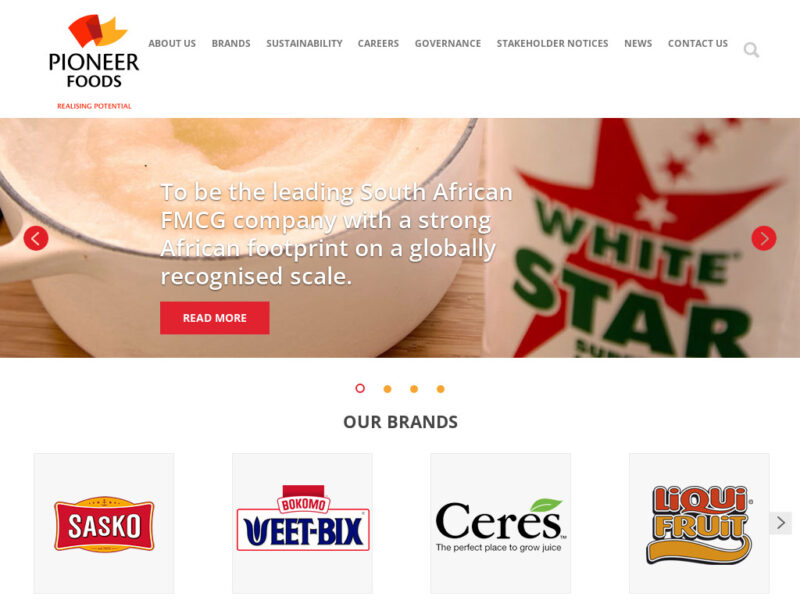
Year Founded: 1996
Founder: Founded via an amalgamation of Sasko and Bokomo
Current Headquarters: Bellville, City of Cape Town, South Africa
Flagship Products: Cereals and Fruit juices
Year Purchased by PepsiCo: 2020
Purchase Amount: $1.7 billion
Pioneer Foods is a South African packaged goods brand founded in 1996 through an amalgamation of Sasko and Bokomo. The company became a PepsiCo subsidiary in March 2020 after PepsiCo purchased 100% of its stake for $1.7 billion.
Considered one of South Africa’s most successful packaged goods manufacturers, Pioneer Foods boasts over five different brands in its portfolio. Noteworthy ones include Bokomo cereals, Ceres Fruit Juice, Liqui-Fruit, and SASKO bread.
11. Stacy’s Pita Chips
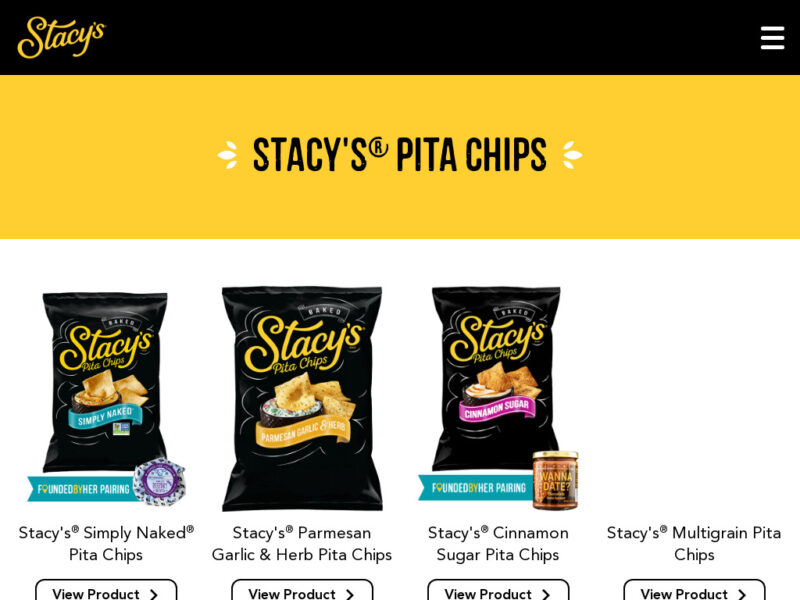
Year Founded: 1998
Founders: Stay Madison and Mark Andrus
Current Headquarters: Randolph, Massachusetts, United States
Flagship Products: Pita chips
Year Purchased by PepsiCo: 2005
Purchase Amount: $243 million
Returning back to the United States, PepsiCo owns yet another renowned snack manufacturer known as Stacy’s Pita Chips.
Founded in 1998 by a highly ambitious entrepreneur Stacy Madison and her then-husband Mark Andrus, Stacy’s Pita Chips has grown over the years to become one of America’s most successful snack food makers. The Randolph-based company especially stands out for its differently flavored pita chips.
12. Lebedyansky
Year Founded: 1967
Founders: Unknown
Current Headquarters: Lebedyan, Russia
Flagship Products: Fruit juice, Vegetable juice, Soft drinks, and Baby products
Year Purchased by PepsiCo: 2008
Purchase Amount: $1.4 billion
Website Link: http://www.lebedyansky.com/
Lebedyansky is a Russian multinational manufacturer of fruit and vegetable juice, baby food, and soft drinks. The company prides itself on being the largest fruit juice maker in Eastern Europe and the sixth largest in the world.
PepsiCo acquired majority stakes in Lebedyansky in August 2008 for $1.4 billion. The deal meant that PepsiCo became Lebedyansky’s largest shareholder and parent company.
13. Simba (Pty) Ltd.
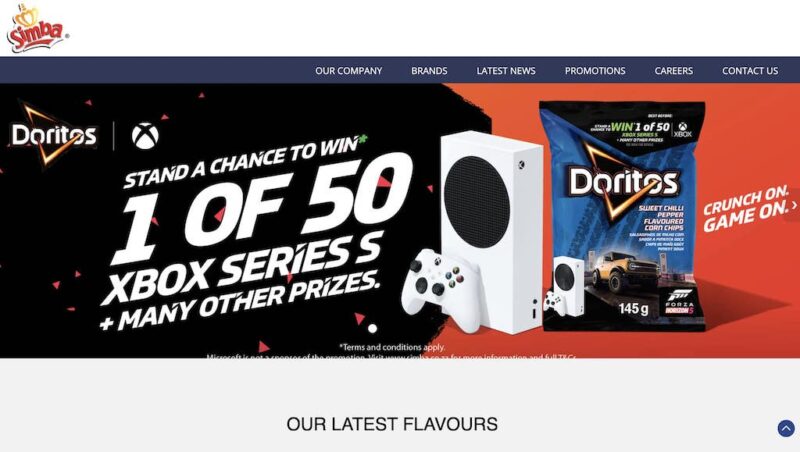
Year Founded: 1957
Founder: Leon Greyvensteyn
Current Headquarters: Isando, South Africa
Flagship Products: Snack foods
Year Purchased by PepsiCo: 1999
Purchase Amount: Undisclosed
The last wholly-owned PepsiCo subsidiary on this list is by no means the least. Simba (Pty) Ltd. is actually one of PepsiCo’s largest brands in South Africa, along with Pioneer Foods.
Like most companies on this list, Simba deals primarily in snack foods. The brand was founded in 1957 by South African investor Leon Greyvensteyn.
Brands Jointly Owned By PepsiCo
14. Tropicana Brands
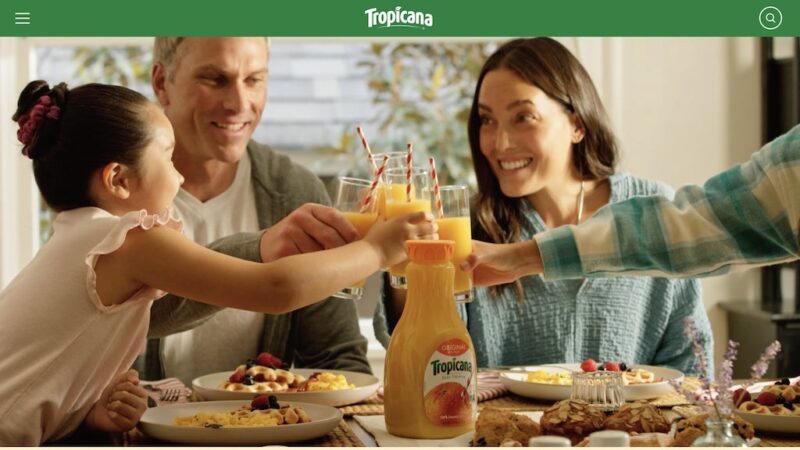
Year Founded: 1947
Founder: Anthony T. Rossi
Current Headquarters: Chicago, Illinois, United States
Flagship Products: Fruit juice
Year Purchased by PepsiCo: 1998
Purchase Amount: $3.3 billion
Other Parent Companies: PAI Partners
Tropicana Brands is perhaps the most notable brand jointly owned by PepsiCo. The company began as a distributor of fruit gift boxes in Florida before later expanding into the production of 100% pure orange juice.
PepsiCo wholly owned Tropicana Brands between 1998 and 2021 after purchasing the fruit juice brand from The Seagram Company Ltd. But in August 2021, the company sold 61% of Tropicana to PAI Partners for $3.3 billion.
15. Sabra Dipping Company
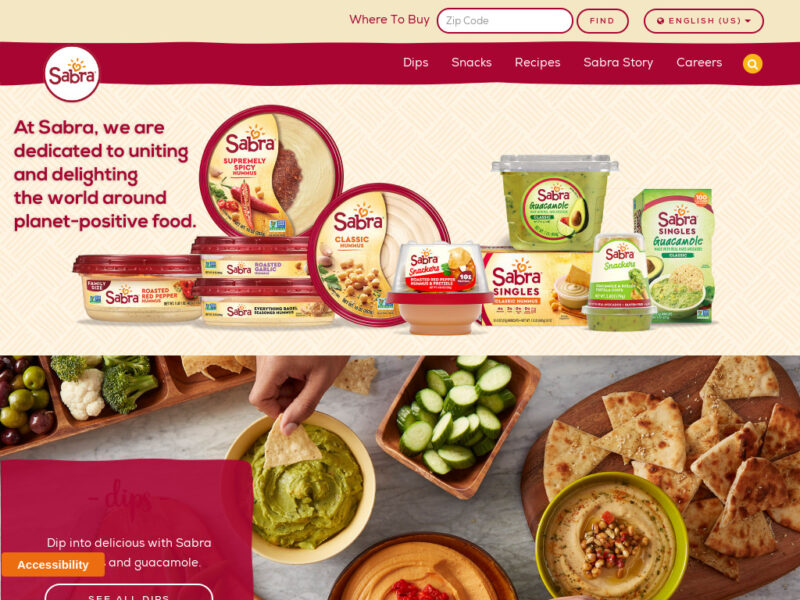
Year Founded: 1986
Founders: Zohar Norman and Yehuda Pearl
Current Headquarters: White Plains, New York, United States
Flagship Products: Dips and Spreads
Year Purchased by PepsiCo: 2008
Purchase Amount: Undisclosed
Other Parent Companies: Strauss Group
Sabra Dipping Company, LLC is a PepsiCo subsidiary best known for its dips and spreads. The company specializes in Middle Eastern-style cuisine, with notable products in this category being hummus. It also distributes a range of foods inspired by other cuisines, including guacamole.
But perhaps what distinguishes Sabra from most PepsiCo subsidiaries is that this brand only deals in kosher and vegetarian products.
Final Word
There goes our complete list of the top fifteen subsidiaries owned by Pepsi. With a market capitalization of $247.21 billion as of March 2023, there’s no telling how many more profitable brands PepsiCo will acquire in the near future.

